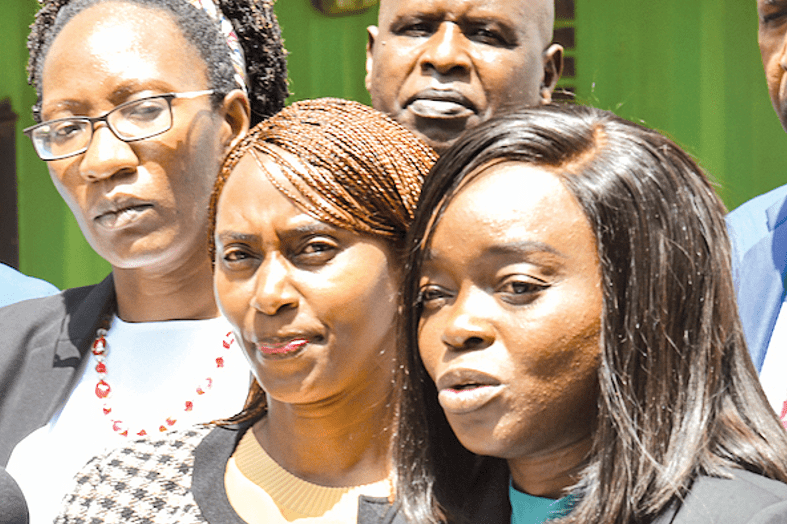‘Over 1.2 million people have voluntarily registered for SHA’ – Health CS Barasa says as sensitizations start
By Amanga Collins, September 16, 2024Health Cabinet Secretary Dr. Deborah Barasa has revealed that over 1.2 million Kenyans have already registered for the Social Health Authority (SHA).
The Ministry of Health is launching a nationwide training initiative ahead of the full rollout of SHA services.
Barasa and Co.
CS Barasa presided over the event alongside Principal Secretary Harry Kimtai, Director General for Health Dr. Patrick Amoth, and the Social Health Authority Chair and CEO.
They provided an update on the roadmap toward the October 1 digitization of healthcare services.
Barasa urged more Kenyans to register with SHA before seeking treatment at healthcare facilities, noting that the transition from the National Health Insurance Fund (NHIF) to SHA is crucial.
She emphasized the importance of completing registration to ensure uninterrupted access to healthcare.
“We urge Kenyans to continue registering with SHA. Over 1.2 million people have voluntarily registered. Ensure you register before visiting healthcare facilities. SHA will transfer existing NHIF members to the new system, so it’s important to complete your registration,” Dr. Barasa stated.
SHA will replace NHIF as part of Kenya’s Universal Health Coverage (UHC) initiative. The registration process began on July 1, 2024, with full implementation set for October 1, 2024.
Formal sector employees will contribute 2.75% of their monthly salaries, while informal sector workers will pay a fixed monthly amount. The Social Health Act 2023 mandates registration, with penalties for non-compliance.
Established under section 25 of the Social Health Act, SHA is expected to pool all contributions and provide healthcare services through empanelled and contracted providers.
SHA access
SHA is keen to ensure every Kenyan resident can access a comprehensive range of quality health services without facing financial hardship.
SHA will cover preventive, promotive, curative, rehabilitative, and palliative health services at level 4, 5, and 6 health facilities. This includes emergency services, critical care, and the treatment of chronic illnesses beyond the benefits outlined in the essential healthcare package of the Social Health Authority.
More Articles

